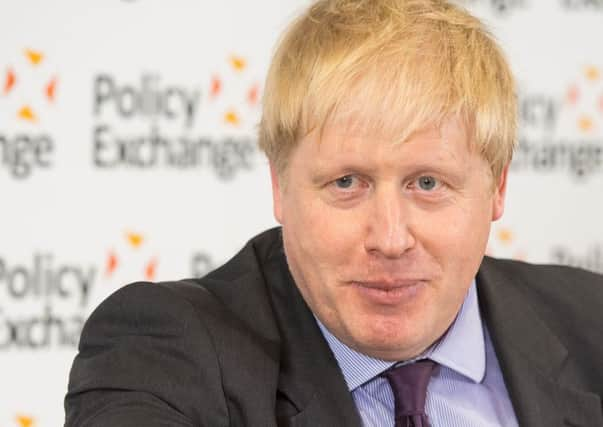Leader comment: Here's the crazy thing about Brexit


As the political juggernaut that is Brexit gathers speed, it’s starting to look like the wheels could come off and the drivers are fighting among themselves. Small wonder then if the journey eventually ends in some kind of crash.
It is scarcely credible that Boris Johnson, the Foreign Secretary, was able to describe plans for a customs partnership with the EU – UK Government policy in all but name – as “crazy” with impunity. In days gone by such a breach of Cabinet collective responsibility would have been a straightforward sacking offence.
Advertisement
Hide AdAdvertisement
Hide AdThat it came just a few days after Business Secretary Greg Clark warned thousands of jobs in the car industry alone could be lost if there were not a “customs agreement that has the minimum of frictions” only added to the impression of chaos at the top.
The hard Brexiteers’ suggestion for how the UK can have frictionless trade with the EU, while at the same time having different trade rules, is based on a fantasy, on technology that hasn’t actually been developed yet. While the UK Government says its customs partnership would be “unprecedented” and “challenging to implement” – and, by the sound of it, that’s putting it mildly – at least it’s not almost deliberately delusional.
Given the EU’s negotiators have shown they are not in the mood for some kind of fudge of border controls, it would appear the UK is rapidly approaching a fork in the road, one branch leading towards the cliff-edge of a no-deal Brexit, the other heading down a gentle slope towards a future UK that is outside the EU but still a member of the Single Market and Customs Union. Given that taking the second route does not rule out travelling further away from the EU at a later date, the choice seems obvious.
Theresa May famously declared after the 2016 referendum vote that “Brexit means Brexit” but only she and her Cabinet decided that Brexit also means leaving the Single Market.
The public fighting between our political leaders over how this is achieved is being driven by a mix of ideology and personal ambition, while the common sense and concern for ordinary people’s livelihoods displayed by politicians like Clark are in danger of being drowned out.
If the Cabinet’s bickering and power games ultimately mean that Brexit wrecks the British economy, they may discover they have reason to fear the much-cited Will of the People.
